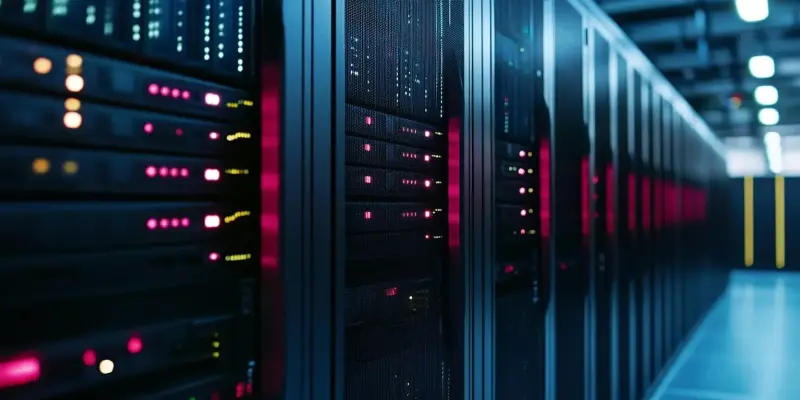In today’s data-driven world, technological advancements, particularly in artificial intelligence (AI) and massive data storage, have created a burgeoning demand for efficient, scalable storage solutions. While flash storage, such as solid-state drives (SSDs), has gained popularity due to its superior speed and performance, hard disk drives (HDDs) remain an essential component in the storage ecosystem. The increasing volume of data generated by smart devices and AI-driven applications necessitates a balanced approach to storage, where cost efficiency and performance are both crucial considerations. In this context, understanding how HDDs stay relevant is key to optimizing data storage strategies for businesses and data centers.
The Balance of Speed and Cost Efficiency
The debate over the relevance of HDDs versus SSDs often centers around performance versus cost. Flash storage undoubtedly offers faster data access and retrieval, making it a preferred choice for high-demand applications requiring low latency. However, the advantages of HDDs become apparent when considering cost efficiency and scalability. For instance, a video streaming platform might store viral content on SSDs to ensure quick access, while less frequently accessed content can be stored on HDDs. This tiered storage approach optimizes cost without sacrificing user experience. By strategically determining which data resides on which storage medium, organizations can manage large volumes of data economically.
Total cost of ownership (TCO) is another critical factor driving the continued relevance of HDDs. As data centers strive to minimize operational costs, they must evaluate capacity, power efficiency, and storage density. HDDs excel in offering large capacity at a lower cost per gigabyte compared to SSDs. Moreover, advancements in HDD technology have led to improvements in power efficiency and cooling requirements. While SSDs may dominate in high-performance sectors, HDDs provide an ideal solution for bulk data storage. This symbiotic relationship between HDDs and SSDs enhances overall storage strategies, balancing the need for speed with economic considerations.
The AI Data Cycle and HDDs
The role of AI in data generation is enormous, with AI systems producing vast amounts of data during both training and operational phases. HDDs prove indispensable in the AI data cycle, particularly for storing extensive training datasets required for developing and refining machine learning models. These datasets can be massive, and storing them on expensive SSDs would be cost-prohibitive. HDDs offer the necessary capacity at a fraction of the cost, making them an integral part of the AI training infrastructure.
Moreover, AI-generated content, including insights, predictions, and creative outputs, adds to the substantial data load. HDDs are well-suited for archiving this AI-generated data, providing ample storage space while keeping costs manageable. The balance between performance and storage needs is crucial, especially as AI applications continue to expand across various industries. As companies harness AI’s potential, the demand for efficient data storage solutions will only grow, reinforcing the relevance of HDDs in managing large-scale data.
Strategic Integration of Storage Solutions
In today’s data-driven world, technological advancements, especially in artificial intelligence (AI) and large-scale data storage, have spurred a growing need for efficient, scalable storage solutions. Flash storage, such as solid-state drives (SSDs), has become popular due to its superior speed and performance. However, hard disk drives (HDDs) are still a vital part of the storage ecosystem. As the volume of data produced by smart devices and AI-driven applications continues to expand, a balanced approach to storage is crucial, highlighting both cost efficiency and performance. Consequently, it is essential to understand the relevance of HDDs in optimizing data storage strategies for businesses and data centers. This comprehension helps ensure that storage solutions are both economically viable and perform well, addressing the increasing demand for data management and access. Balancing both forms of storage enables businesses to maintain a cost-effective model without sacrificing the swift performance that modern applications and data analytics require.

